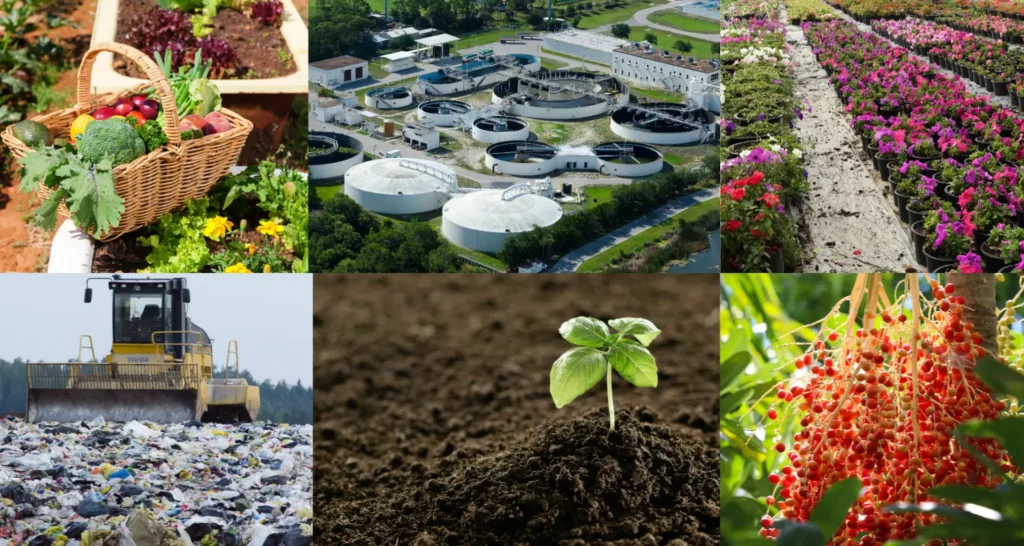Potassium Humate Uses in Diverse Sectors
Potassium humate is an organic compound that is derived from humic acid, which is formed by the decay of organic matter. It is a natural substance that has gained popularity in various industries due to its numerous benefits and versatile applications. In this article, we will explore the different uses of it and its significance in agriculture, horticulture, and environmental applications.

Table of Content
- Introduction
- Potassium Humate in Agriculture
- Potassium Humate in Horticulture
- Potassium Humate in Environmental Applications
- Conclusion
- FAQs (Frequently Asked Questions)
Introduction
Potassium humate is a natural product that is rich in humic acid and potassium. It is obtained through the extraction and refinement of humic substances found in organic matter such as coal, peat, and leonardite. Due to its unique properties, it finds a wide range of applications in various industries.
Potassium Humate in Agriculture

Improving Soil Structure
It is widely used in agriculture to improve soil structure. When applied to the soil, it enhances its physical properties by increasing its water-holding capacity, improving aeration, and preventing soil erosion. The improved soil structure allows for better root penetration and nutrient absorption by plants.
Enhancing Nutrient Uptake
One of the significant benefits is its ability to enhance nutrient uptake by plants. It acts as a chelating agent, binding essential nutrients such as nitrogen, phosphorus, and potassium, making them more available to plants. This results in increased nutrient absorption and utilization, leading to healthier and more productive crops.
Stimulating Plant Growth
It is known for its plant growth-promoting properties. It stimulates root development, leading to stronger and more extensive root systems. Additionally, it enhances cell division and elongation, promoting overall plant growth. The use of potassium humate can result in improved crop yield, quality, and resistance to environmental stressors.
Potassium Humate in Horticulture
Improving Seed Germination
In horticulture, it is often used to improve seed germination. It provides a favorable environment for seeds to sprout and develop by enhancing soil moisture retention and nutrient availability. This leads to higher germination rates and healthier seedlings.
Enhancing Root Development
Similar to its effects in agriculture, it promotes root development in horticultural plants. It helps establish robust root systems, which play a vital role in nutrient absorption and water uptake. Stronger roots contribute to healthier plants with improved resistance to diseases and adverse growing conditions.
Boosting Flowering and Fruiting
It is beneficial for enhancing flowering and fruiting in horticultural crops. It stimulates the production of plant hormones responsible for flowering, resulting in more abundant and vibrant blooms. Furthermore, it aids in fruit setting, development, and quality, leading to higher yields and improved market value.

Potassium Humate in Environmental Applications

Soil Remediation
It is utilized in soil remediation projects to mitigate soil pollution and improve soil health. It acts as a natural chelating agent, binding heavy metals and other pollutants, thereby reducing their bioavailability and preventing their uptake by plants. This helps in the restoration of contaminated soil and promotes sustainable land use.
Water Treatment
Due to its ability to bind and remove pollutants, it is also employed in water treatment processes. It effectively removes toxins, heavy metals, and organic compounds from water bodies, improving water quality and ensuring the safety of aquatic ecosystems. Its use in water treatment aids in preserving the natural balance of aquatic environments.
Composting and Waste Management
It plays a crucial role in composting and waste management systems. It enhances the decomposition of organic matter, accelerating the breakdown of waste materials into nutrient-rich compost and thus produces high-quality organic fertilizers and reduces the volume of waste destined for landfills.
Conclusion
Potassium humate is a versatile organic compound with a wide range of applications. Its uses in agriculture, horticulture, and environmental applications have proven to be beneficial in improving soil health, enhancing plant growth, and promoting sustainable practices. By harnessing its power, we can create a more productive and environmentally friendly approach to farming, gardening, and waste management. Bulk Agro Chem offers the best quality Potassium Humate in India which can be used in various applications as mentioned in this blog post.
FAQs (Frequently Asked Questions)
- What is potassium humate?
Potassium humate is an organic compound derived from humic acid, formed by the decay of organic matter.
- How does potassium humate improve soil structure?
It improves soil structure by increasing water-holding capacity, improving aeration, and preventing soil erosion.
- Can potassium humate be used in organic farming?
Yes, it is approved for use in organic farming as it is derived from natural sources.
- Does potassium humate have any adverse effects on plants or the environment?
When used as directed, it is safe for plants and the environment. It promotes sustainable practices and aids in soil and water remediation.
- Where can I obtain potassium humate for agricultural or horticultural use?
It can be purchased from Bulkagrochem.com in preferred quantities.



